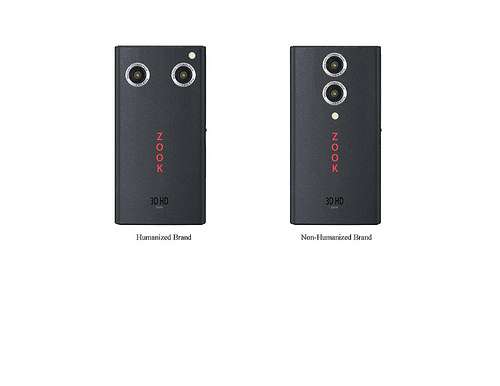Putting a human face on a product: When brand humanization goes wrong

(Phys.org) —When companies put a human face on their brand, the public usually responds positively. This advertising approach has brought us alarm clocks with sleepy faces and color-coated chocolate candies with legs and arms.
But a new study, published online ahead of print in the Journal of Marketing, finds there is a greater backlash by the public when a product branded with human characteristics fails.
Lead author Marina Puzakova, an assistant professor of marketing at Oregon State University, said even though consumers can tell a camera designed with human characteristics such as little eyes and legs isn't a person, the very act of humanizing a product can be a powerful tool.
"Somehow, now the product seems alive and mindful, and therefore can be perceived as having intentions and its own motivations to act in a certain way," Puzakova said. "This perception of intentions can be extremely strong – consumers now see the brand as performing bad intentionally and therefore consumers develop more negative sentiments toward the brand."
Puzakova conducted five experiments with products that had experienced negative publicity. As a general procedure, participants saw advertisements of both existing and fictitious products, where "human" characteristics, such as arms, legs, or facial-like features were manipulated. Then Puzakova showed participants news reports about how the product had failed in some way, not lived up to its advertising claim, or did not function based on consumer expectations.
In every instance, participants reported that they had stronger negative reactions to the products that were given human characteristics, also known as "brand anthropomorphization."
"Brand anthropomorphization can be a very powerful advertising tool, so I am definitely not saying that companies shouldn't use it," Puzakova said. "However, they need to be aware that when they imbue their products with human-like characteristics, any backlash when something goes wrong could be stronger."
Puzakova's study found that the strength of negative reactions depended on consumer personality differences as well. Based on a personality test she gave participants, she found that people who believe in "personality stability," or that personality traits are always the same and don't change over time, tended to have stronger negative feelings towards anthropomorphized brands.
"Broadly speaking, men tend to believe in personality stability more than women, and seniors as well," Puzakova said. "Also, some cultures tend to believe in this more than others. This can be important for advertisers to know, depending on who their target market is.
Having a deeper knowledge about their target markets, companies can also design their advertising communications tailored for different types of consumers. For example, marketers may want to emphasize flexibility and change in an ad campaign in order to reverse negative attitudes by male consumers, who tend to believe in personality stability.
Puzakova's research also has a lesson for companies whose brands fail because of a product malfunction.
"As consumers who believe in stability of personality traits react to product failures more negatively, our research finds that companies need to provide either monetary compensation or give away coupons," Puzakova said. "Offering a public apology is not enough. For instance, companies that have a humanized brand marketed heavily towards seniors may need to be prepared to generously compensate those consumers if something goes wrong."
The bottom line, Puzakova said, is companies need to know their audience and the possible dangers of humanizing a brand when a product malfunctions. It can be a powerful advertising tool, but if the product fails in some way, the damage control could be costly and timely.
Journal information: Journal of Marketing
Provided by Oregon State University















